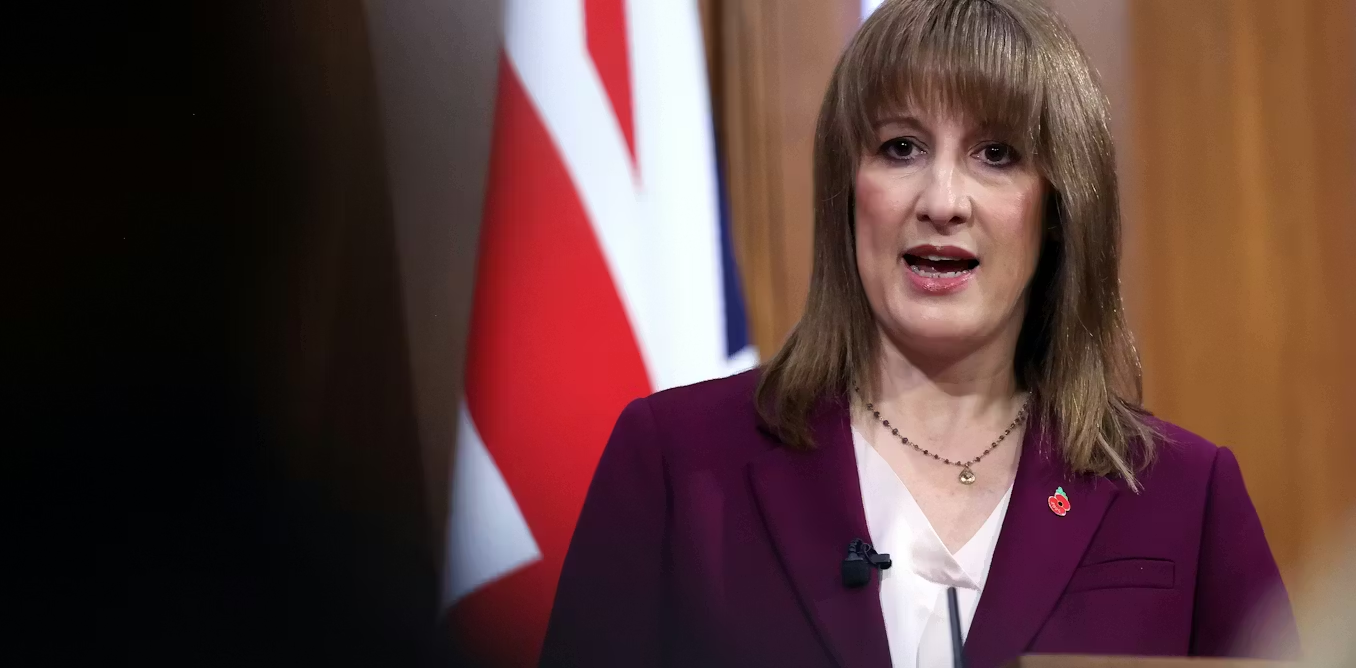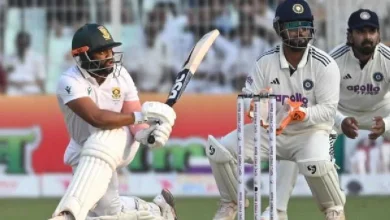‘Mansplaining’ is different from other criticism – and Rachel Reeves is right to call it out

Ahead of delivering a consequential budget, Rachel Reeves, the chancellor of the exchequer, told the Times she was “sick of people mansplaining how to be chancellor to me”. She added: “I recognise that I’ve got a target on me. You can see that in the media; they’re going for me all the time.”
The term “mansplaining” signals a gendered dimension to how Reeves is critiqued. The suggestion is that, as a woman in a highly visible role, she is subject to patronising explanation, implicitly from men, that would not be levelled at a male chancellor. The prime minister backed up this assertion, saying that women in public life are subject to “much more criticism and abuse” than men.
Critics accused her of “playing the sexist card” – using the claim of mansplaining to deflect from questions about her policy record, including tax rises, welfare decisions and budget choices.
Women in public life often experience sexist behaviour but are punished for pointing it out.
This is not a defence of Reeves’s policies, nor a claim that she should be insulated from criticism – no chancellor is. Neither is it to suggest women are beyond critique, or too fragile for political life. Rather, the concern is with how criticism is delivered: the tone, assumptions and gendered framing that often underpin assessments of women in power.
“Mansplaining” typically refers to a particular mode of explanation: one delivered with unwarranted confidence, grounded in an assumption of superior authority – even when directed at a woman who is the expert in the room.
Men and women can be both perpetrators and targets of mansplaining. However, the term has particular force because it reflects deeper cultural patterns in which authority is still coded as male and, more specifically, white and middle or upper class.
Reeves operates in two fields – economics and politics – long dominated by men. The “default expert” in the public imagination remains male. Against this backdrop, separating robust policy challenge from patronising instruction becomes more difficult, especially as female leaders frequently face both.
The authority gap
A large body of research supports what journalist Mary Ann Sieghart terms the “authority gap”. This is the systematic tendency to undervalue women’s expertise, leadership and competence.
Research shows that women politicians are more likely than men to be covered in the media in terms of their appearance, family life or personal traits.
Casual sexism like mansplaining exists in unequal organisational systems. Our research on leadership pipelines shows that women face exclusion from informal decision-making and powerful networks, a pattern also observed in the civil service. In many sectors, this may become more pronounced when gender intersects with ethnicity and class.
The cumulative picture is clear: women must frequently exceed male colleagues simply to be judged equally competent
Credentials may help close this authority gap. Recent research finds that female economists persuade the public more than identical male counterparts but only when they are presented with visible credentials (university affiliation, professor title). Visible credentials don’t have a similar effect for men.
This suggests that for women like Reeves, the issue isn’t simply an absence of credentials – it is that their credentials must do extra work: acting not just as proof of competence, but as a signal of belonging in a role whose default image is male. In other words, Reeves is no less qualified than many previous chancellors, but may have to exceed the “average chancellor” threshold before her authority is assumed.
Doesn’t everyone get insulted in politics?
Critics often argue that Reeves is not unique. Male politicians, they note, face personal ridicule too. Boris Johnson, for example, was routinely mocked as a “buffoon”.
But these insults differ in important ways. As one example, calling Johnson a buffoon does not imply men are inherently unsuited to leadership.
They also do not draw on centuries of stereotypes used to keep men out of power. The cultural script suggesting men lack authority because they are men simply does not exist.
I’ve got your back, chancellor.
Tolga Akmen/EPA-EFE
One telling example is the label “Rachel from accounts”, used by some to denigrate Reeves. This is not simply a dig, it is a gendered metaphor that places Reeves in a clerical, subordinate role – the diligent administrator who keeps receipts but does not make strategic decisions.
It reinforces a familiar pattern in which women leaders are recognised as operationally competent, but not as strategic thinkers. This is a dynamic our research identified in evaluations of women political leaders, even when their performance is rated equal to male politicians.
Crucially, there is no male equivalent to “Rachel from accounts”. This is why invoking the “rough and tumble of politics” as an explanation for such insults misses the point.
It is natural to attribute criticism to unfairness rather than mistakes. Women are not exempt from this. But gendered dismissal can coexist with legitimate scrutiny. The critical point is that still, women in public life are expected to navigate both.
Politics will always involve fierce criticism. The issue is whether it must also involve the reinforcement of unequal authority — and whether women in public life are allowed to name the structural patterns shaping their experience.
To move forward, expecting women leaders to refrain from calling out gendered criticism in the name of resilience will not shift the status quo. Organisations and institutions (including media, political commentary, boards, financial teams) must pay close attention to whose expertise is being assumed and whose contributions are being questioned or overlooked.
Until then, women like Reeves will continue to walk the tightrope: expected to endure sexist behaviour, and criticised for noticing it.





